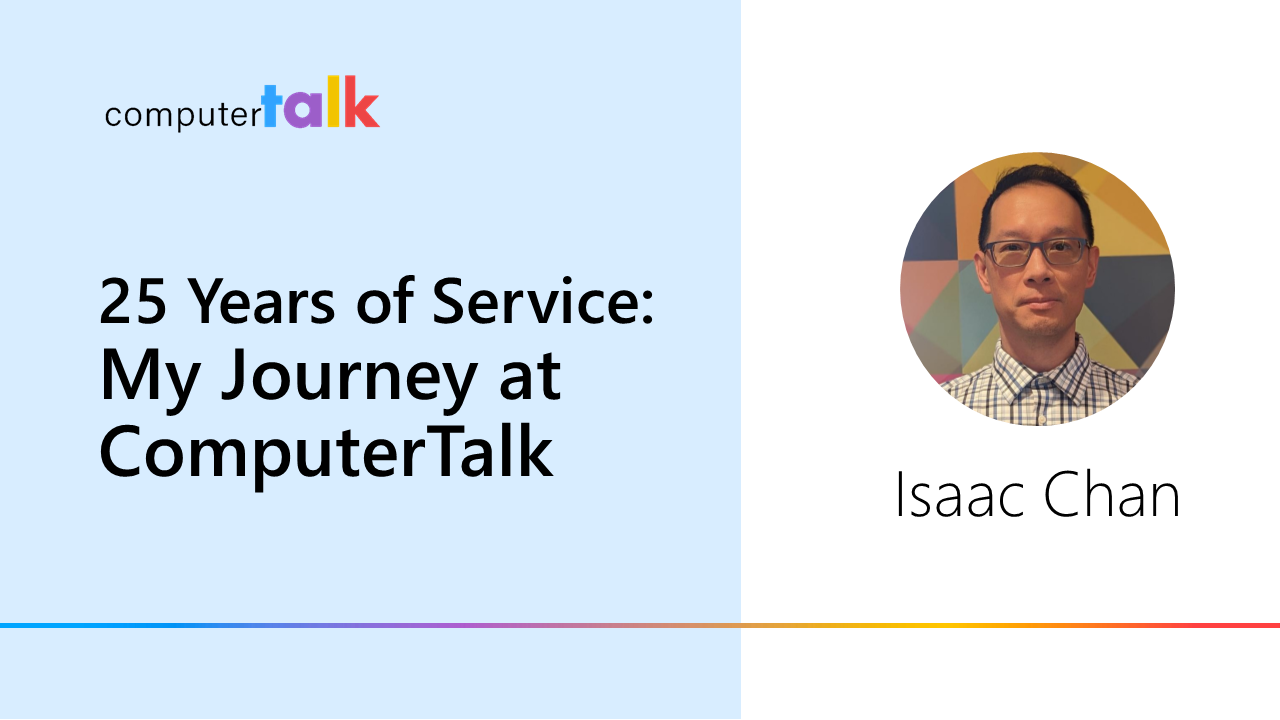13 Things to Consider When Choosing a Contact Center
by Erina Suzuki | Published On May 13, 2022 | Last Updated October 25, 2024

Contact centers play a vital role in enabling communication between businesses and their customers. They also help build client relationships, resolve issues, and provide opportunities for sales.
As customer experience becomes increasingly important, companies must carefully assess several factors before selecting a contact center solution. With numerous options available in the market, choosing the right technology for your organization can be a difficult task. In this article, we will review the 13 most important factors to consider when selecting a contact center for your organization.
What is a Contact Center?
A call center is traditionally focused on handling customer interactions by phone, serving as a central hub for customer inquiries and support. However, as customer expectations have evolved, so has the need for businesses to communicate across multiple channels. This shift has led to the emergence of contact centers.
Unlike call centers, contact centers support a range of communication channels beyond phone calls, such as email, live chat, SMS, and social media. This multi-channel approach allows customers to engage with businesses on their preferred platform, making it more convenient and efficient. Integrated contact center solutions enable agents to manage multiple customer interactions simultaneously—responding to a live chat while handling a phone call, for instance. This flexibility helps improve responsiveness and ultimately boosts customer satisfaction.

Benefits of having a contact center
- Meet rising expectations from customers: In today's fast-paced world, customers expect immediate and seamless support across multiple communication channels. With the increasing use of digital channels such as social media, live chat, and email, businesses must keep up with these demands. A contact center allows your organization to be accessible through various platforms, ensuring that customers can reach you through their preferred channel, whenever they need.
- Increase customer satisfaction and retention: Customer satisfaction is directly tied to their experience when interacting with your business. A well-equipped contact center offers multiple channels, faster response times, and personalized interactions, all of which lead to happier customers. Happy customers are more likely to remain loyal to your brand, make repeat purchases, and recommend your services to others. By consistently delivering excellent customer service, your contact center can become a key factor in maintaining customer loyalty.
- Provide quick resolutions and responses to queries: One of the major benefits of a contact center is the ability to quickly address customer issues. Whether it's through automated self-service tools like interactive voice response (IVR) systems or skills-based routing that directs inquiries to the right agents, these features help reduce wait times and streamline resolutions.
- Drive sales and growth: A contact center isn't just about handling customer complaints; it also serves as a valuable touchpoint for upselling and cross-selling opportunities. By engaging with customers, addressing their concerns, and offering personalized recommendations, agents can drive additional sales. Offering superior customer service gives your business a competitive advantage, fostering long-term business growth through both new customer acquisition and increased lifetime value of existing customers.
- Differentiate your business with superior customer service: In a crowded marketplace, exceptional customer service can set your business apart. A well-integrated contact center enables you to offer a seamless, personalized, and consistent customer experience across all communication channels. This level of service helps you stand out from competitors who may not provide the same level of attention to customer care. By investing in a contact center, you demonstrate a commitment to customer satisfaction, which can become a unique selling point for your business.

How to Choose the Right Contact Center Solution
We get it—choosing a contact center solution can feel overwhelming, especially with so many options out there. But don’t worry, we’ve narrowed down the top factors you need to take into account to make an informed choice.
1. Type of contact center: Cloud vs. On-Premises
One of the first decisions to make is whether you want a cloud-based contact center, or an on-premises contact center. If your contact center is on premises, that means all the hardware is owned by you and maintained at your own facility. Cloud contact centers, on the other hand, are hosted by a third-party provider using remote servers.
Cloud-based solutions are rapidly becoming the top choice due to their flexibility, cost savings, and advanced software features. They also offer the benefit of remote work support, a major advantage for today’s hybrid workforces.
2. Omnichannel Capabilities
According to Microsoft, 49% of consumers use between three to five different communication channels to contact customer service. When you're looking for your next contact center solution, ensure it has omnichannel capabilities. This allows customers to reach you through their preferred communication channels.
Omnichannel contact centers centralize all customer interactions on a single platform, ensuring seamless transitions between channels like social media, live chat, and phone calls without customers needing to repeat their information. This results in a more personalized customer experience and boosts customer satisfaction.
3. Third-party Integrations
Ensure that your prospective contact center solution can integrate with your current applications. By doing so, your team can continue leveraging familiar applications while ensuring consistency in the way they deliver customer service. These applications include customer relationship management (CRM), ticketing solutions, workforce management (WFM), and more.
A highly configurable contact center also ensures that new cutting-edge applications can be integrated in the future, which will keep your business ahead of the competition.
4. Compliance and Security
In industries like healthcare, finance, and retail, compliance and security are critical when choosing a contact center solution. It's essential to ensure the solution adheres to the regulations governing your industry. For instance, in healthcare, compliance with regulations such as HIPAA is mandatory to protect patient data. Similarly, financial institutions must adhere to standards like PCI DSS to secure sensitive payment information.
By choosing a contact center with strong security features, you not only safeguard customer information but also enhance the trust and credibility associated with your business.

5. AI and Automation Capabilities
Artificial intelligence (AI) is revolutionizing how contact centers operate, making them more efficient and improving the customer experience. When evaluating contact center solutions, look for platforms that integrate with AI-powered features like chatbots, predictive dialers, speech analytics, and natural language processing (NLP).
AI can assist with automating repetitive tasks such as answering common queries, routing calls, or providing customers with self-service options through interactive voice response (IVR) systems. This reduces the workload for human agents, allowing them to focus on more complex and high-value interactions. Furthermore, AI-driven speech analytics can help monitor and analyze customer interactions in real time, providing insights into customer sentiment and improving service quality.
6. Features
It’s important to evaluate the features that each contact center offers. Make a list outlining which features are essential for your business and which are "nice-to-have."
Common features for contact centers:
- Call queuing
- Call recording
- Call monitoring and barging
- Call transcription
- Intelligent and skills-based routing
- Interactive voice response (IVR)
- Chatbots
- Predictive dialer
- Real-time reporting
These features contribute to a more efficient and productive contact center, driving better customer experiences.
7. Scalability
While your business may be a certain size today, it’s often difficult to predict what things will look like a few years down the road. For this reason, it’s important to consider how scalable your contact center needs to be and choose appropriately based on that.
Scalable contact centers should be able to adapt to new demands and capacities while delivering the same level of quality and customer satisfaction. This includes the flexibility to scale call capacity up or down based on demand or seasonality, ensuring efficient handling during peak times without over-resourcing during quieter periods. Some helpful features to have for scaling a contact center include self-serve options like IVR, intelligent and skills-based call routing, and cloud-based hosting platforms.
8. Product roadmap
Be sure that your prospective vendor has a product roadmap that communicates its future service plans. Reviewing their roadmap can help determine if their contact center solution aligns with your organization’s goals for the years ahead. A strong product roadmap enables your team to take advantage of the latest technologies, including ongoing innovation of new product features and updates, ensuring you stay ahead of the competition.
Ask yourself: Does the provider plan to release new innovative features? Will their system adapt to emerging customer service trends? It’s also helpful to understand if the vendor takes customer feedback into account when developing their product roadmap, allowing you to influence enhancements.
9. Technical Support
Spend less time managing technologies and more time delivering excellent customer service. It's important that your contact center vendor has an experienced technical support team so they can provide the best course of action when issues arise. Assess your requirements and analyze whether the vendor can accommodate your needs.
Here are some questions you may want to consider:
- Does the vendor offer 24-hour customer support?
- Does the vendor offer dedicated account managers or support representatives?
- In which language do you require support?
10. Vendor Relationship
The partnership you have with your vendor is just as important as their technical support. Choose a reliable and responsive vendor to ensure all expectations are clearly discussed and outlined beforehand.
Consider asking yourself some of these questions when choosing a vendor:
- Are they prompt in their response?
- Are they upfront about pricing and what is included?
- Do they have a clear explanation for all your questions? If you have any doubts, the vendor is probably not the right fit for your business.

11. Unified Communication Strategy
Examine your organization’s current unified communication (UC) strategy and see if there are opportunities to streamline communication and collaboration between agents and customers. Perhaps you are looking for a separate UC platform for your contact center, or maybe you are looking to implement a new UC platform while retaining your existing contact center solution.
If your organization uses Microsoft Teams internally, consider implementing a Microsoft Teams contact center. A certified Teams contact center solution offers full contact center functionalities while allowing your agents to continue using the familiar Teams interface. By taking the time to analyze your existing strategy, you can uncover ways to enhance your overall customer service.
12. Pricing
Price is an important consideration for anyone shopping for a contact center. Often, contact center providers will price their solutions based on a subscription model. These subscriptions can be billed monthly or annually and usually depend on the number of users. Other contact center providers may charge a perpetual licensing fee, which gives you permanent access to the software for a one-time fee.
Besides the quoted price, you should also consider the hidden costs to your organization associated with deploying and operating the contact center. This may include hiring new staff, upgrading existing hardware and increasing overall operating costs.
13. Case Studies and Customer Reviews
Finally, one of the best ways to understand if a vendor is the right fit for you is to learn how it has helped other organizations. Many contact center vendors provide case studies and application stories that share information about their customers’ challenges and how they overcame them with the vendor’s solution. You can also ask the vendor for references to contact that are in your industry or a similar one.
Additionally, it is worthwhile to check out third-party sites that review contact center platforms. These sites include Gartner Peer Insights, Info-Tech Research Group, G2, and more. Get a good sense of what customers say about the solution, how the solution solved their problems and the level of support they received throughout the process. This way, you can assess and determine if the vendor and their contact center solution align with your organization's requirements and goals.

Selecting the Best Contact Center Solution
Choosing the right contact center solution is crucial for delivering a top-tier customer experience. As customers demand more seamless and personalized interactions, the right contact center helps businesses retain loyalty, drive growth, and stay competitive.
By evaluating these 13 key factors, you’ll be better equipped to choose a solution that meets your business goals.
Ready to elevate your customer service with the perfect contact center solution? Contact a ComputerTalk representative today for a personalized consultation and see how we can help you transform your customer interactions.
More from our blog
 Workforce management tools are essential for running an efficient contact center. Learn more about different options for WFM software.
Workforce management tools are essential for running an efficient contact center. Learn more about different options for WFM software.
 It is hard to believe 5 years have flown by and I am deeply rooted in the world of Major Incident Management and Business Continuity Planning at ComputerTalk. After spending 20+ years within the large corporate law firm environment,...
It is hard to believe 5 years have flown by and I am deeply rooted in the world of Major Incident Management and Business Continuity Planning at ComputerTalk. After spending 20+ years within the large corporate law firm environment,...
 I have been working at ComputerTalk for a quarter of a century! I can't count on one hand the events in my life that surpass this milestone.
I have been working at ComputerTalk for a quarter of a century! I can't count on one hand the events in my life that surpass this milestone.

